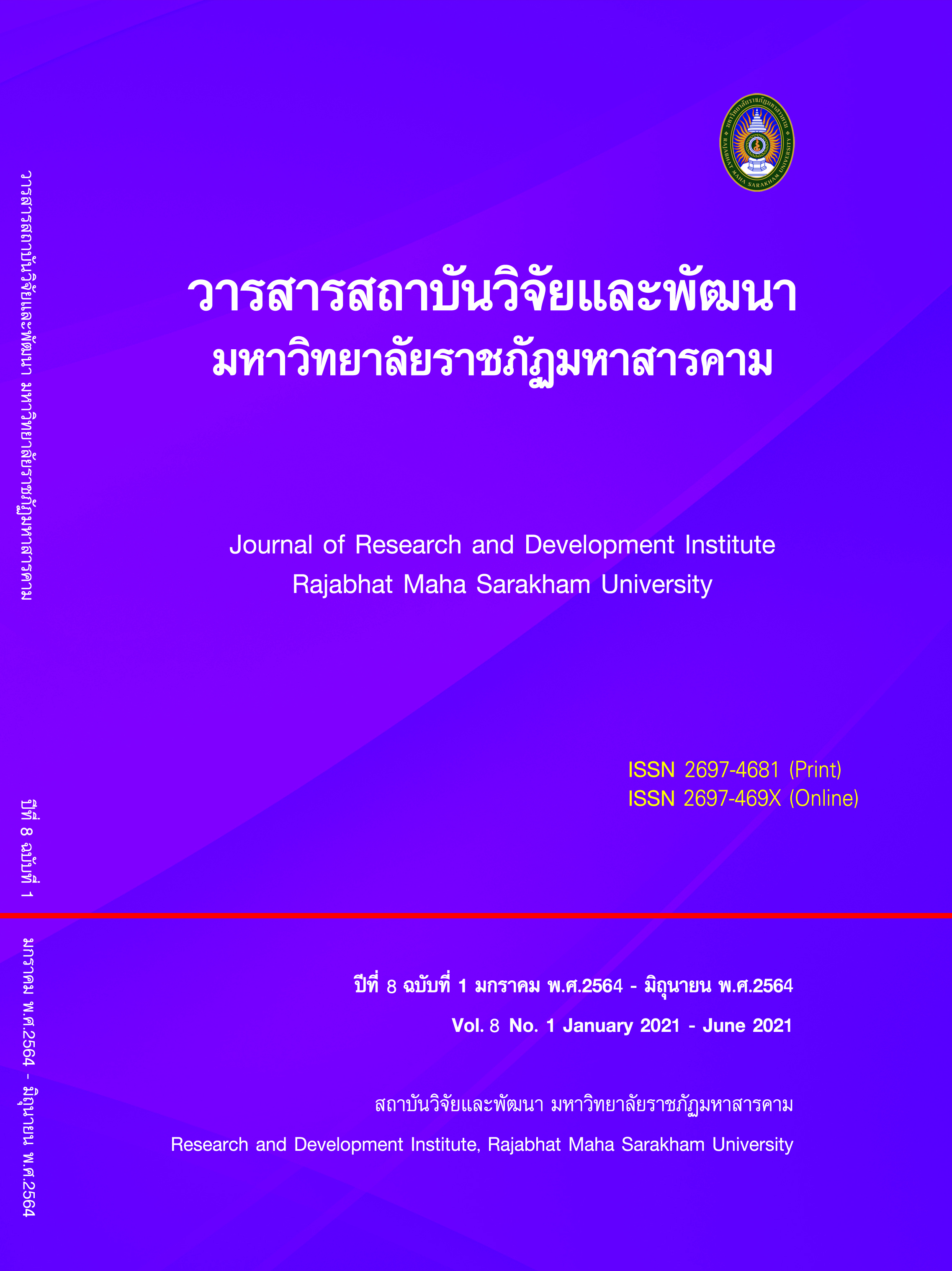Strategy for Development of student,s ethics under of The Prachuap Khiri Khan Primary Educational Service Area Office 2
Keywords:
moral developmentAbstract
The purposes of this research were to study current conditions desirable conditions and requirements strategy for development of student,s ethics under of The Prachuap Khiri Khan Primary Educational Service Area Office 2. The sample was used in this study ;27 administrators, 280 teacher, and chairman of the basic education institution 27, a total of 334 persons. The instrument for data collection was 5-level rating scale questionnaire with IOC value between 0.85-1.00, and overall validity value of 0.98.
The research findings were as follows :
1. current conditions desirable conditions and requirements strategy for development of student,s ethics under of The Prachuap Khiri Khan Primary Educational Service Area Office 2. The overall level is moderate. The highest average ;Development by setting up a school environment, Developed using good examples, Developed by student development activities, Development by teaching and learning and Development by community involvement.Desirable condition overall level is very high.The highest average ; development of teaching and learning, developed by student development activities, developed using good examples, development by community involvement and development by setting up a school environment.
2. Strategy for Development of student,s ethics under of The Prachuap Khiri Khan Primary Educational Service Area Office 2 ; strategy 1 : Development by teaching and learning 6 measure ; strategy 2 : Developed by student development activities 4 measure; strategy 3 : Developed using good examples 3 measure ; strategy 4 : Development by setting up a school environment 5 measure ; strategy 5 : development by community involvement 2 measure.
References
Education Council Secretariat. (2010). a model of cultivating morals, ethics, values and desirable characteristics. [Online]. http://www.onec.go.th. [20 march 2020]
Krejcie, R. V. & Morgan, D. W. (1970). Determining Sample Size for Research Activities. Educational and Psychological Measurement, 30(3), pp. 607-610.
Lasasuta, W. (2009). Enhancing morals and ethics of students in the 3rd grade at the Holy Child School, Roi Et Under the Roi Et Educational Service Area Office, District 1. Master’s Thesis: Maha Sarakham Rajabhat University.
Lekruengsin, A. (1999). Ethics for Executives. Bangkok: Suan Dusit Rajabhat university.
Ministry of Education. (2008). Guidelines for organizing student development activities according to the basic education curriculum, B.E. 2008. Bangkok: Office of Academic Affairs and Educational Standards, Cooperative Printing Press, Agriculture of Thailand Co., Ltd.
Nakornthap, A. (2005). Principles and concepts of educational contexts. (2nded). Nonthaburi: Sukhothai Thammathirat Open University.
Office of the National Education Commission. (1999). National Education Act of 1999. Bangkok: Office of the National Education Commission.
Phrakhru Thammatharachan. (2016). Moral Development Strategies Ethics for students in basic education institutions Under the Office of Khon Kaen Primary Education Area 1. Master’s Thesis: Northeastern University.
Suksawat, S. (2009). Moral and Ethical Development of Students at Satri Nonthaburi School. Independent research. Bangkok: Silpakorn University.
Downloads
Published
How to Cite
Issue
Section
License
Copyright (c) 2021 Journal of Research and Development Institute Rajabhat Maha Sarakham University

This work is licensed under a Creative Commons Attribution-NonCommercial-NoDerivatives 4.0 International License.
Articles that are published are copyrighted by the authors of the articles







